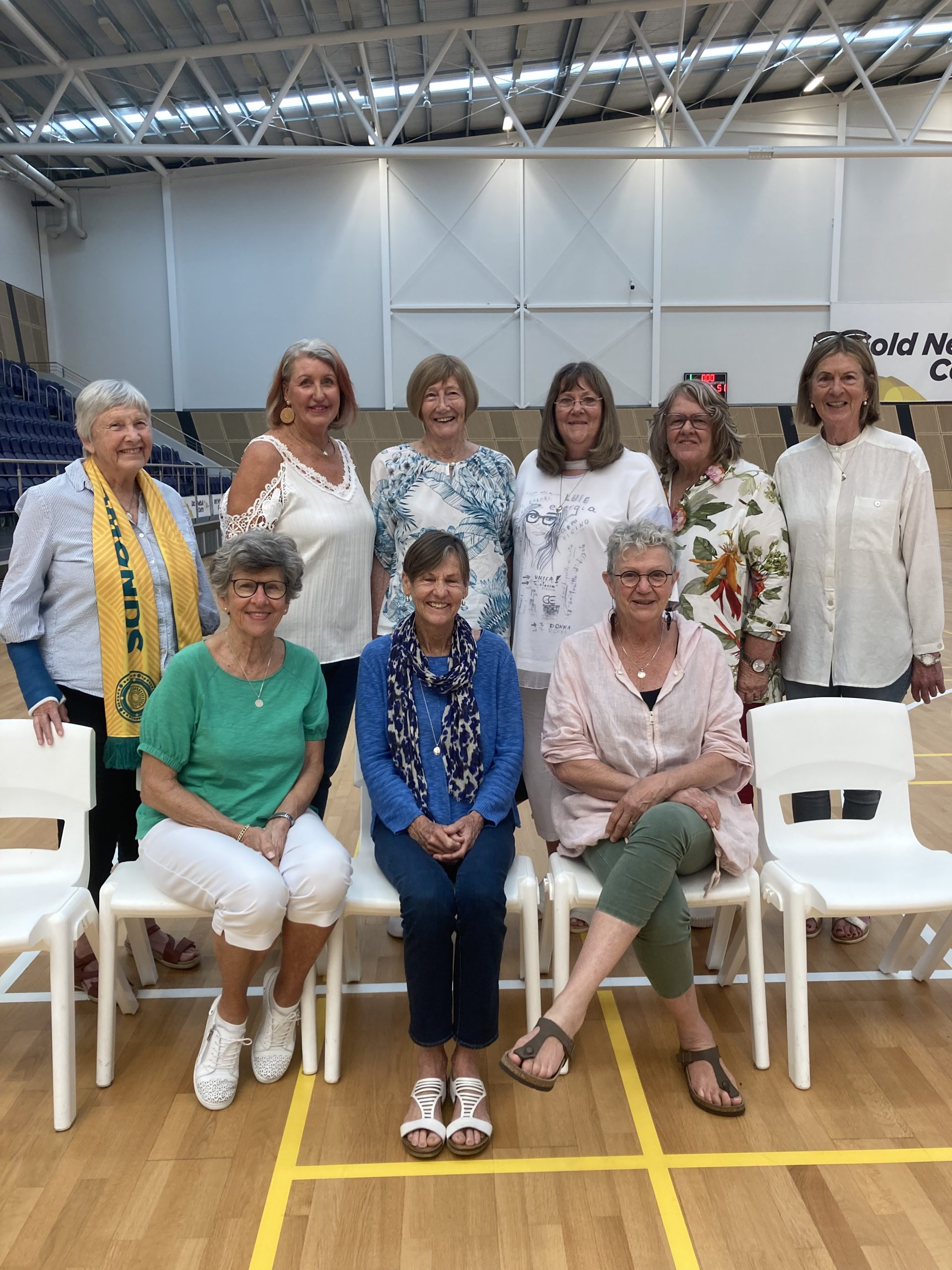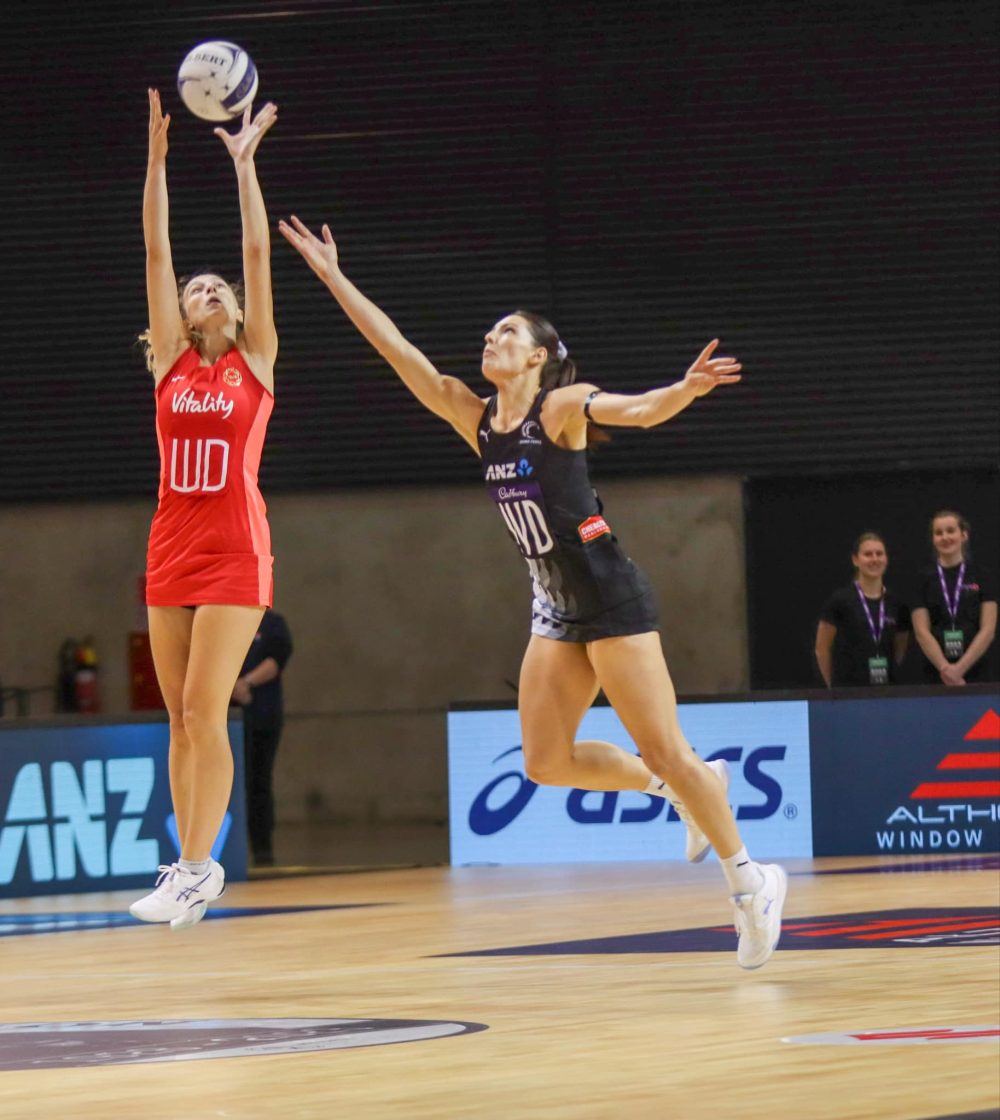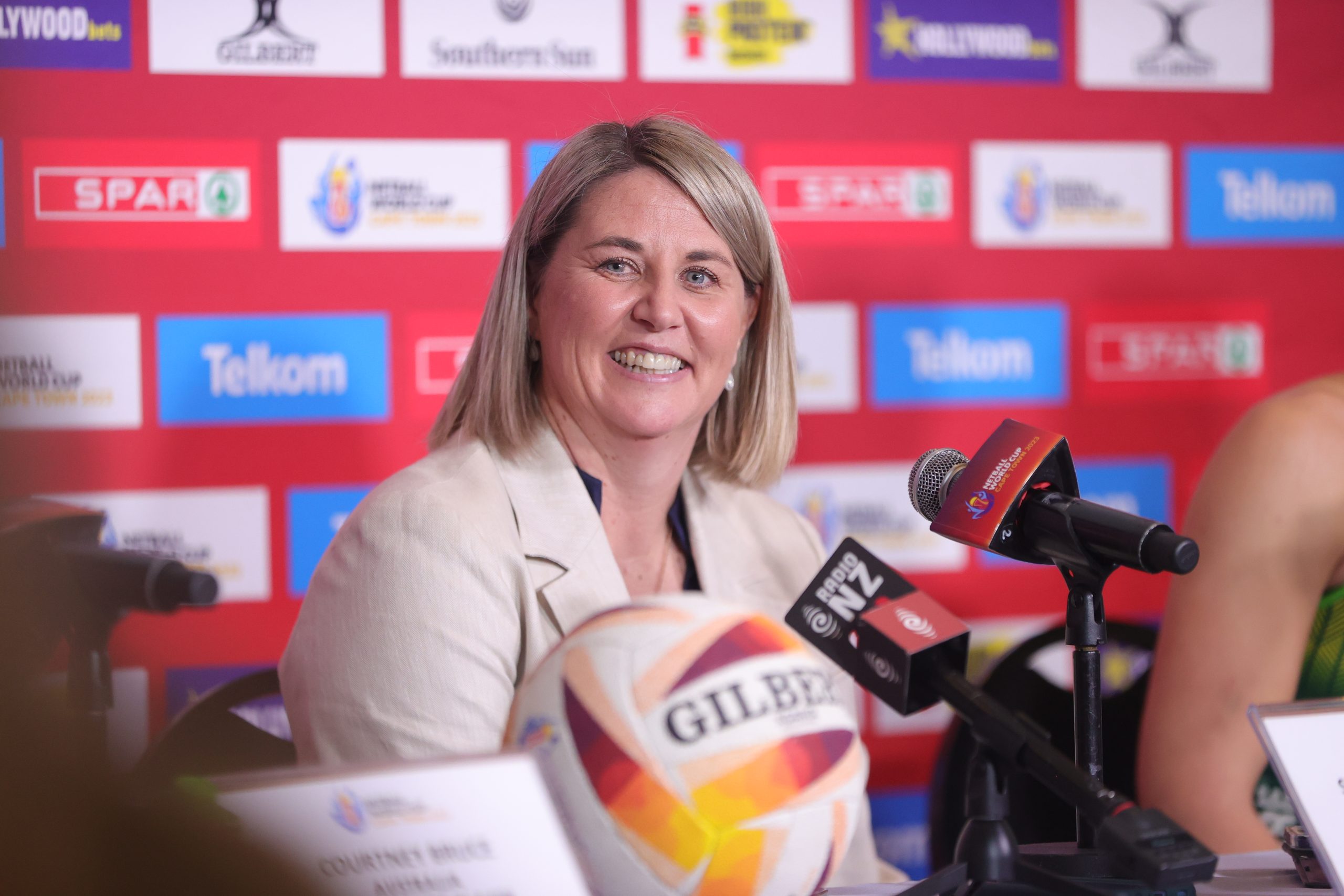It’s hard to imagine London without Big Ben, Buckingham Palace or the Pulse, but in the latter’s case, that was the situation just a few short years ago. While Natalie Seaton formed the netball pathway club in 2016, London Pulse only joined the Vitality Super Netball League four short years ago. After a tough inaugural season, Sam Bird was headhunted to lead the new franchise.
“I have a great affinity for London and it was a good fit for me,” the former English international said, “but it was hard to recruit players at the start. We didn’t have a lot to sell – ‘Yes, we’re a new club, yes, we came last, but I promise you, we will be good!’ So it was a great challenge to have and I was really pleased to have the opportunity.”
Bird and her assistant coach, Fiona Murtagh, with the support of Pulse’s board, made the conscious decision to build, rather than buy, a team. Bird said, “We decided that if we were going to come last, we would do it with talented kids. So we invested in some of the best young talent in the country, players that had been through our pathway, and athletes that we knew would come to London.
“The pandemic threw a curve ball at us, but we managed to retain our core of young players with a couple of experienced ones in there.”
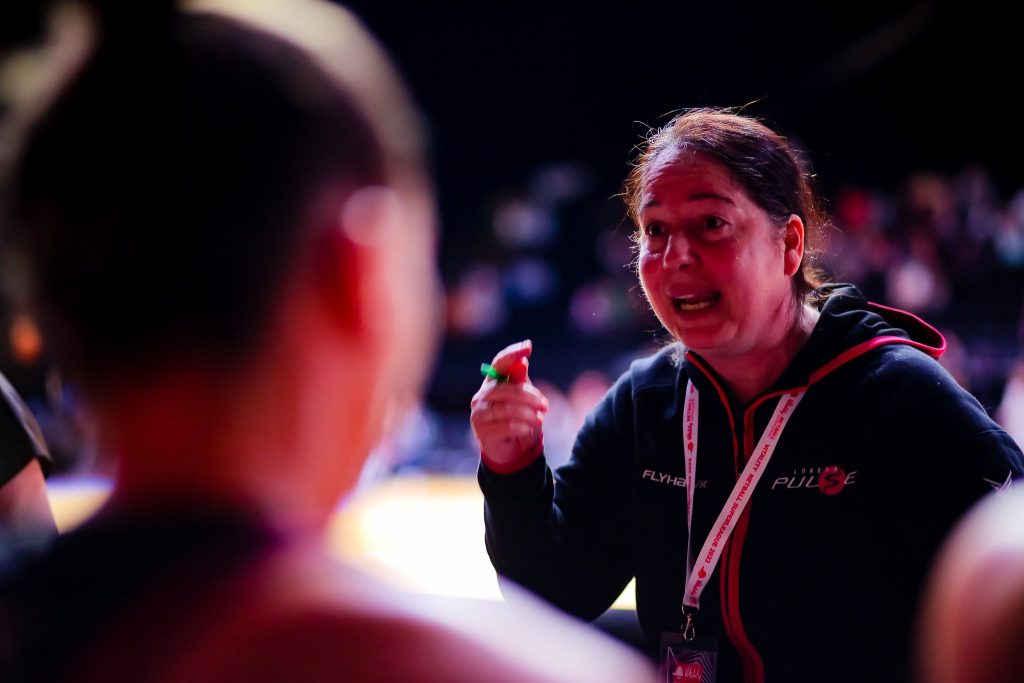
Sam Bird has been the driving force behind London Pulse’s growth over the past two seasons. Image: Ben Lumley
Pulse had a clear vision for the sort of players they wanted to attract, and the values they needed to fit in at the club. Bird said, “We genuinely recruit people before players. We now have a group that are superficially very different – they look different and sound different and eat different food and have different faiths, or no faith at all.
“But what they all have in common is they are good people. They have to be kind, they have to want to work hard, and they have to be humble. If they don’t have those values, they aren’t right for our club.
“They might still be right for other clubs, but our players bond through wanting to serve the club, to help with our community programmes, to want to learn and become better netball players, and to help the club succeed.”
However, inexperienced young athletes are very different from those who’ve been around the traps for a while. Well aware that her young athletes would need to be well supported, Bird layered them with safety nets.
Firstly, bodies needed to be nurtured – could their developing frames cope with the workload given to them. Bird said, “Staff meet every week to discuss the players from a physio and strength and conditioning point of view, and we discuss how they’re coping, and what are their barriers?”
Care of the individual was also paramount, with coaches holding more personal one-on-one catch-ups with their players, every few rounds. “It’s really wrap around support for them, and we use it as an opportunity to check in with them about how they are going,” said Bird.
“That could include anything from exams to work, is their schedule okay, if they are cooking for the first time or living away from home for the first time, are they eating well or dialling in junk food? Then there’s the highs and lows of relationships and friendships.
“Safety is also a big thing for us. Our younger athletes are travelling around London, quite often on public transport. So are they safe at night, how are they getting home? That goes hand in hand with encouraging females to take part in sport, but they have to be safe while they are doing it.”
The team’s leadership group also has an important role, mentoring the less experienced players. Bird laughed, “I can sound just like their mum, so we encourage the more senior players to provide peer to peer support. Lyndsay Keable has been great in that role, and Tayla (Honey) has also been great in that space this year.”

Pulse have put a lot of work in the layers of support around young athletes like Liv Tchine. Image supplied by London Pulse
Bird has a talent for developing young players, and as she grew in that role, so did the athletes around her. She said, “I find it very exciting. It’s that age group where they don’t know how good they are, and they don’t know what their potential is.
“When you try and give advice they will often take it, talk about it, and are passionate about learning, developing and reaching their potential. They will give anything a go.”
As her fledglings spread their wings on court, so other clubs noticed, and started knocking at their doors. So how did Bird help Pulse become a club that players wanted to stay at, rather than one they wanted to leave? Along with the level of support and care that is offered, Bird believes that it comes down to honesty.
“In female sports there is generally a shyness or perceived arrogance about wanting to win championships. We aren’t either of those, we are just honest about being ambitious. We want to be the best Super League team there is.
“For me, it’s about bringing the athletes along with the club’s aim for success. They have bought into that. Not only do we want to make Super League playoffs consistently, we want to do that the whole way through our pathway. So we are creating that championship mindset all the way through the club, and doing everything we can to achieve that.”

Pulse make no apologies for holding high ambitions. Funmi Fadoju picking off an intercept. Image supplied by London Pulse
Perhaps the most inspiring aspect of Bird’s nature is her strong sense of social responsibility. Inclusion and finding human commonality are buzzwords for many, but they are behind every decision she takes as Director of Netball. From the school programmes and kids community events, to visually impaired netball, the partnership with Knight’s Men’s team, and low ticket prices. Even the specifically designed kit by partner Flyhawk, which covers arms, legs and heads to support athlete’s cultural needs.
Bird said, “London has so much diversity. We wanted to thread into our club culture that everybody, from any walk of life, would feel welcome. We’ve done a lot of work in our communities to help them to trust us. It’s easy to say we embrace diversity, but it’s essential that we do it in practice.
“It’s a responsibility I take very seriously, and I am genuinely so passionate about providing a safe space for young girls to play netball. That’s the environment I started in – a summer league set up in the carpark at Luton Town Football Club, and after my first few sessions I was hooked.
“So I know it works, and I know it needs to be done on a big scale in London. There are challenges and barriers – such as poverty, culture, language and religious beliefs – and that just makes me even more determined to reach those young athletes. But sport should be a place for everybody. Even if you don’t want to play, you can be the photographer or the reporter or a scorer.
“All the staff know that it’s a key priority, and just as important as winning championships to me.”

Pulse have established a strong connection with the London community. Image supplied by London Pulse
Having cemented a first final’s appearance, Pulse’s head coach is now having as many sleepless nights as her overwhelming first few months in the role. How will her team respond to the pressure?
“In many of my 3 am scenarios they are fearless and they’ve smashed it, or they are rabbit in the headlights and it’s a painful day. I think it will be the former,” she laughed.
“And knowing that we are in finals does change how we prepare for the last few weeks of the season. We are really focusing into a London Pulse bubble. Us against the world environment. Providing support, sharing stories from people who have been there before, Lisa’s (Alexander) empowering input about a winning culture.
“Our players need to recognise that making playoffs is the start of the journey, not the end, and embrace the opportunity to try and perform at our very best.”
There’s also a bigger picture around finals for Pulse. Bird’s next tier of English athletes – four in the Roses programme, and more in the Futures and pathways – need to experience competing in the spotlight. “It’s a circus,” said Bird. “The play-offs, the media, the pressure, the fans. It’s very different to the regular season, and something those players will only benefit from.”
While excitement around finals is building at Pulse – an electrical bolt spanning players, fans, staff and the wider community – Bird knew the team’s presence in the top four had been just a matter of time.
“I always believed that it was going to happen, and that it was inevitable. Every step for these kids is a new one, an important milestone, and if we keep growing with them, and doing the right thing around them, we can achieve anything.”
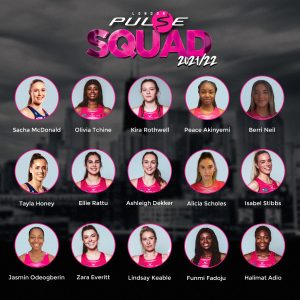
The Pulse squad for 2022. Image supplied by London Pulse


